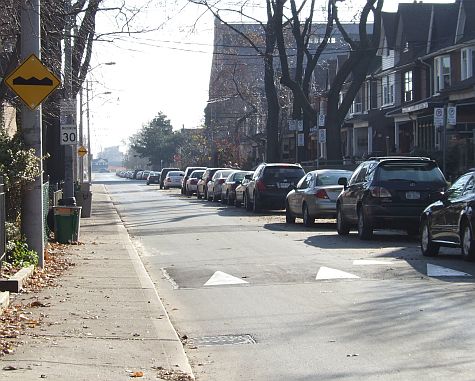It’s an indicator when the New York Times publishes that “Queen Street East is the new Queen Street West”. The area is called South Riverdale, and we’re either at the eastern edge of “Riverside”, or the western edge of “Leslieville“. Besides the explosion of restaurants down the street from us, I’ve noticed two other signs of gentrification in our neighbour.

Firstly, we now have a speed bump right outside our front door. I opposed the petition for this as not-in-my-back-yard over-reaction, because we’re in a downtown neighbourhood, and relatively speaking, the street doesn’t really go anywhere, so we don’t get that much traffic. I guess I got outvoted.

The second signal is the opening of a new Starbucks, just around the corner. The property has a history as a series of mostly unsuccessful greengrocers. Starbucks has done a nice job renovating the building, and will probably become an integral part of the neighbourhood. It’s already had an impact on traffic patterns: drivers commonly stop near the corner on Logan Avenue to dash inside for an espresso … right by that no-stopping sign where traffic cops love to write tickets! Anyone who really knows the neighbour would drive the extra 2 seconds to park in the Value Village parking lot!


